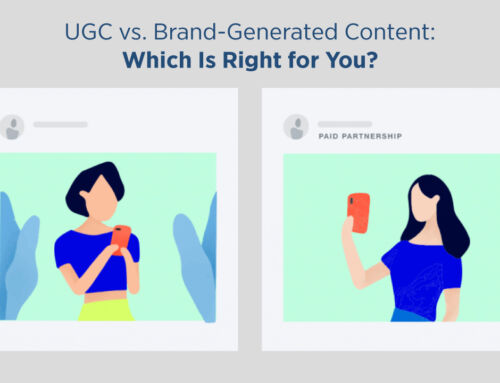Last updated on March 25, 2022
Canadians are more than twice as likely to say their impression of Trudeau has worsened due to the Supply and Confidence Agreement between the Liberal and NDP parties.
Introduction
On March 22nd, the Federal Liberals and NDPs forged an agreement that would see the NDP support the Liberals on budget and confidence votes until 2025 and in exchange the Liberals agree to move forward on some NDP programs. The Liberals and the NDP are claiming that in these “uncertain times,” what Canadians want is stability.
Has this agreement between the two parties created stability? Do Canadians generally support or oppose the agreement? How has this agreement positively or negatively impacted the impressions Canadians have of the Leaders of the Liberals and NDP parties, i.e., The Prime Minister Justin Trudeau and the Jagmeet Singh, respectively? More importantly, what has the agreement done to each party’s base, i.e., those who voted for the Liberals or the NDP in that last federal election on September 20, 2021, just 6 months ago? Does each party’s base generally support this agreement? Do they have better or worse impressions of their respective party leader?
We polled our panel to find the answers to these questions. Note that Caddle collected detailed information on our panel including how they voted in the past federal election and this voting question had been verified across subsequent waves of interviewing to ensure consistency and accuracy. Using this same longitudinal panel for this poll on March 23-24, 2022, allows us to show the impact of the Supply and Confidence Agreement not only amongst the general population at a point in time, but also on each party’s base over time.
Key Findings
- Canadians are roughly divided on support and opposition to the Supply and Confidence Agreement.
- Support for the Liberals amongst their base eroded more significantly after the Supply and Confidence agreement compared to levels in the weeks prior to the “Agreement” or for other parties the days after the agreement.
- Impressions of both leaders, i.e., Prime Minister Justin Trudeau and NDP Leader Jagmeet Singh, have both suffered a net-negative impact, although Justin Trudeau’s impression suffered more greatly.
- The Conservatives pulled away from the Liberals in the days after the agreement, but it remains a tight race.
The Conservatives pull ahead of the Liberals in the days after the announcement of the Supply and Confidence Agreement
Poll Tracker
We asked Canadians: If a federal election were held today, which federal party would you vote for? Amongst decided votes over the three waves, it is a statistical dead heat between the Liberals and the Conservatives. The two days after the Supply and Confidence Agreement, however, shows the Conservatives pulling away slightly from the Liberals (as shown in Exhibit 1).
Liberals have lost more support from their base than the NDP
Base Voter Support
Although the Conservatives are pulling ahead in our poll tracker above, what is of interest is the extent to which each party is retaining or losing support from their base, i.e., those who had voted for them in the last election, and how that retention has changed over the month. The table below (Exhibit 2) shows that support amongst each party’s base is consistently around 90%. The Liberals are the only major party to experience a significant decline in this retention metric and are currently sitting at 82%. To answer the question: “How has the Supply and Confidence Agreement affected support amongst the base of the various parties,” the Conservatives and the NDP appear to not have lost support amongst their base voters, but it appears the Liberals have.
Canadians are divided over the Supply and Confidence Agreement, not unified
Support of the Agreement
Do Canadians generally approve of this agreement? Does it bring the sense of stability that the Prime Minister and Jagmeet Singh have been claiming Canadians want? Stability suggests a coming together, a unifying moment, something that Canadians can generally agree on and get behind. Canadians, however, are roughly divided over this agreement as is depicted in the table below (Exhibit 3) with just slightly more than half (53%) supporting the agreement (although most of that support is on the softer side of the scale, i.e., “somewhat support”), whereas almost as many (47%) oppose the agreement (although opposition is on the stronger side of the scale). Not surprising is that the vast majority of Liberal voters (84%) support the agreement, but what might be surprising and concerning to the leader of the NDP Jagmeet Singh is that more than 1/3 of NDP voters (36%) oppose it.
Canadians are now more than twice as likely to say their impression of Prime Minister Justin Trudeau has worsened as a result of the Supply and Confidence Agreement
Impact of the Supply and Confidence Agreement on Canadians’ impressions of party leaders.
What impact did the Supply and Confidence Agreement have on Canadians’ impression of both leaders? Although Prime Minister Trudeau approached the NDP with the plan, it nonetheless resulted in a net negative impact of 23 basis points on the impression Canadians have of him. We ask Canadians, “Has the Supply and Confidence Agreement improved or worsened your impression of Prime Minister Justin Trudeau?” The data in the table below (Exhibit 4) shows that Canadians are now more than twice as likely to say their impression of him has worsened.
For comparative purposes, we asked Canadians about Justin Trudeau’s handling of the Trucker’s Convoy Protest and the impact, if any, that had on their impression of him as Prime Minister in our March 3-4 poll. Results are very similar for this event with a net negative impact of 24.6 basis point and Canadians more than twice as likely to have a worse impression.
Jagmeet Singh, in contrast, fared a little better than Justin Trudeau but the net impact is still a net negative of 16 basis points. We ask Canadians, “Has the Supply and Confidence Agreement improved or worsened your impression of NDP Leader Jagmeet Singh?” The table below (exhibit 6) shows that the agreement has had a net negative impact on the impression Canadians have of him.
Methodology
Caddle surveys on March 3-4, 2022, March 10-14, 2022 and March 23-24, 2022, were conducted using Caddle’s mobile platform and online panel amongst a representative randomized sample of n=1297, n=1297 and n=1002 Canadian adults respectively who are members of the Caddle Panel. For comparison purposes only, a probability sample of this size would carry a margin of error of +/- 2.7 (n=1297) and 3.1 (n=1002) percentage points for the larger sample size, 19 times out of 20. The data were weighted back to the population (by age, gender, and region) using the most recent Statistics Canada population data. The total counts in the exhibits are unweighted and discrepancies in or between totals are due to exclusion of don’t know / unsure, did not vote / not intending to vote. The survey was self-commissioned and paid for by Caddle, Inc.
About Caddle
Launched in 2015 by former consumer packaged goods (CPG) leader and Canadian Grocer 2016 Generation Next award winner Ransom Hawley, Caddle® is one of the largest daily and monthly active consumer panels in Canada. Our mobile-first insights platform rewards Canadians for sharing data and engaging with brands – designed to help brands make better decisions, faster.
Macro and niche data verticals include:
· New Moms
· Costco Shoppers
· Amazon Prime Members
· Cannabis Consumers
· Health Professionals
· Luxury Shoppers
· Shopper Dads
· Repeat Purchasers
· Vegan Buyers
Now working with nearly every major CPG and grocery retail brands, Caddle provides access to rapid insights at every stage of the consumer journey across every type of shopper, Canada-wide.
For more information to discuss the results of the poll or to find out more about Caddle, please contact:
Ransom Hawley
CEO at Caddle
ransom@caddle.ca
Ransom graduated from the Ivey Business School and spent 7 years in the Consumer Packaged Goods industry at SC Johnson, in both Sales and Marketing. Ransom became the youngest member of the Canadian Leadership Team, managed SCJ’s largest client (Walmart), and managed iconic brands like Ziploc, Windex, and OFF. In 2015, after a chance meeting with Apple co-founder, Steve Wozniak, Ransom founded Caddle, a mobile-first consumer insights marketplace working with brands like Walmart, P&G, Domino’s, Nestlé, and PepsiCo. Caddle was recently named a Metabridge Top 15 Canadian Scale Up, and featured in MacLeans as one of the Top 50 Fastest Growing Start Ups in Canada.
Get better business insights, faster, with Caddle.
Want more Caddle Insights? Sign up to our email list!





Leave A Comment